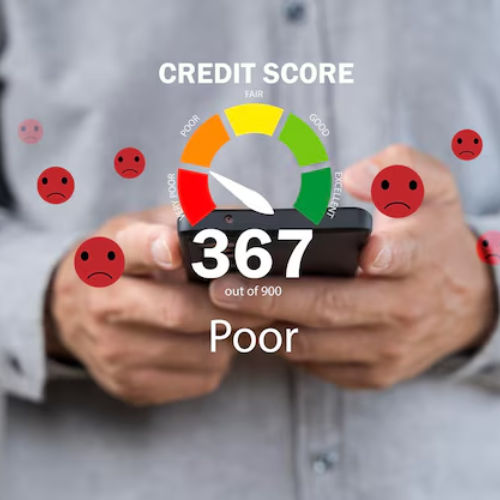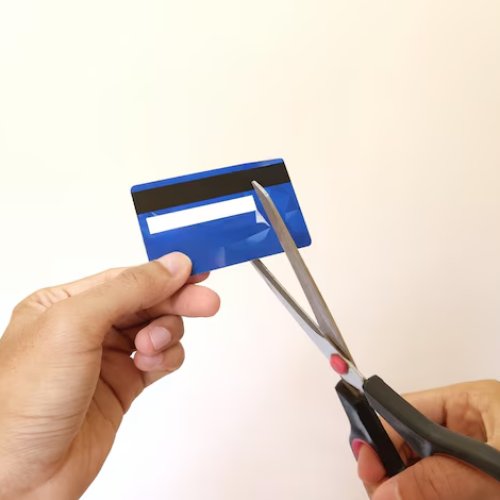Your credit score is more than just a number — it’s the key to getting approved for loans, credit cards, rental applications, and even some jobs. While most people know that missing payments can damage their score, many don’t realize that seemingly harmless habits can quietly lower their credit rating over time. If you’re trying to build or maintain good credit, here are seven everyday behaviors that may be hurting your credit score without you even realizing it.
1. Paying Only the Minimum Balance Every Month
While making the minimum payment keeps your account in good standing, it doesn’t mean you’re off the hook. Consistently carrying a balance can raise your credit utilization ratio, which compares your total credit debt to your credit limit. A high ratio can lower your score, even if you never miss a payment. Ideally, you should keep your credit usage below 30% — and the lower, the better.
2. Closing Old or Unused Credit Cards
It might feel satisfying to close a credit card you no longer use, but this can actually hurt your credit. Length of credit history is a key factor in your score, and older accounts help establish that history. In addition, closing a card reduces your overall available credit, increasing your utilization rate. Unless a card has a high annual fee or security risk, it’s usually better to keep it open.
3. Applying for Too Much Credit in a Short Time
Every time you apply for a new credit card or loan, a hard inquiry is placed on your report. One or two over a year won’t make much difference, but multiple applications within a short time can signal risk to lenders — and that can cause your score to dip. Spread out your credit applications and only apply when truly necessary.
4. Ignoring Small Bills or “Non-Credit” Accounts
It’s easy to forget about a small medical bill or a gym membership cancellation fee, especially if it’s not tied to a credit card. But if these balances go unpaid and are sent to collections, they can appear on your credit report and drag your score down significantly. Always monitor your accounts and take care of all bills, even the ones that don’t seem to affect your credit at first glance.
5. Co-Signing Loans Without Fully Understanding the Risk
Co-signing a loan or credit account for a friend or family member might seem like a kind gesture, but it puts your credit on the line. If the other person misses payments or defaults, it affects your credit just like it would if you missed the payments yourself. Lenders see co-signed accounts as your responsibility, too, so think carefully before agreeing to help.
6. Not Checking Your Credit Report Regularly
Mistakes happen. Whether it’s an account listed twice, a payment marked late by accident, or even identity theft, errors on your credit report can do serious damage if not caught early. Yet many people don’t check their credit reports at all. You can receive a free report from each of the three credit bureaus once a year at AnnualCreditReport.com. Reviewing your report regularly helps you stay informed and take action if something looks wrong.
7. Not Having a Mix of Credit Types
Your credit score also considers the diversity of your credit portfolio. If you only have one type of credit — like just credit cards or just a student loan — you might not be getting full credit for responsible borrowing. While you shouldn’t open new accounts just for variety, having a mix of revolving credit (credit cards) and installment loans (like auto loans or mortgages) can improve your score over time.
Final Thoughts: Small Habits, Big Impact
Good credit isn’t just built on big decisions, but with everyday habits. The key is awareness. By understanding how these common behaviors affect your credit score, you can make smarter financial choices that keep your credit healthy in the long run. It’s not just about paying your bills on time; it’s also about managing credit responsibly, knowing how lenders view your financial behavior, and staying proactive.
So take a moment to review your credit habits. Are you unknowingly making any of these mistakes? The sooner you identify and correct them, the faster your score can recover and be ready for whatever financial opportunities come your way.
All information in this and other BOISLA articles is subject to change over time. Please check for updates directly with the institutions and companies mentioned. Approval is subject to the institution’s review.
REFERENCES:
Read more about finances in https://boisla.com/category/blog/





